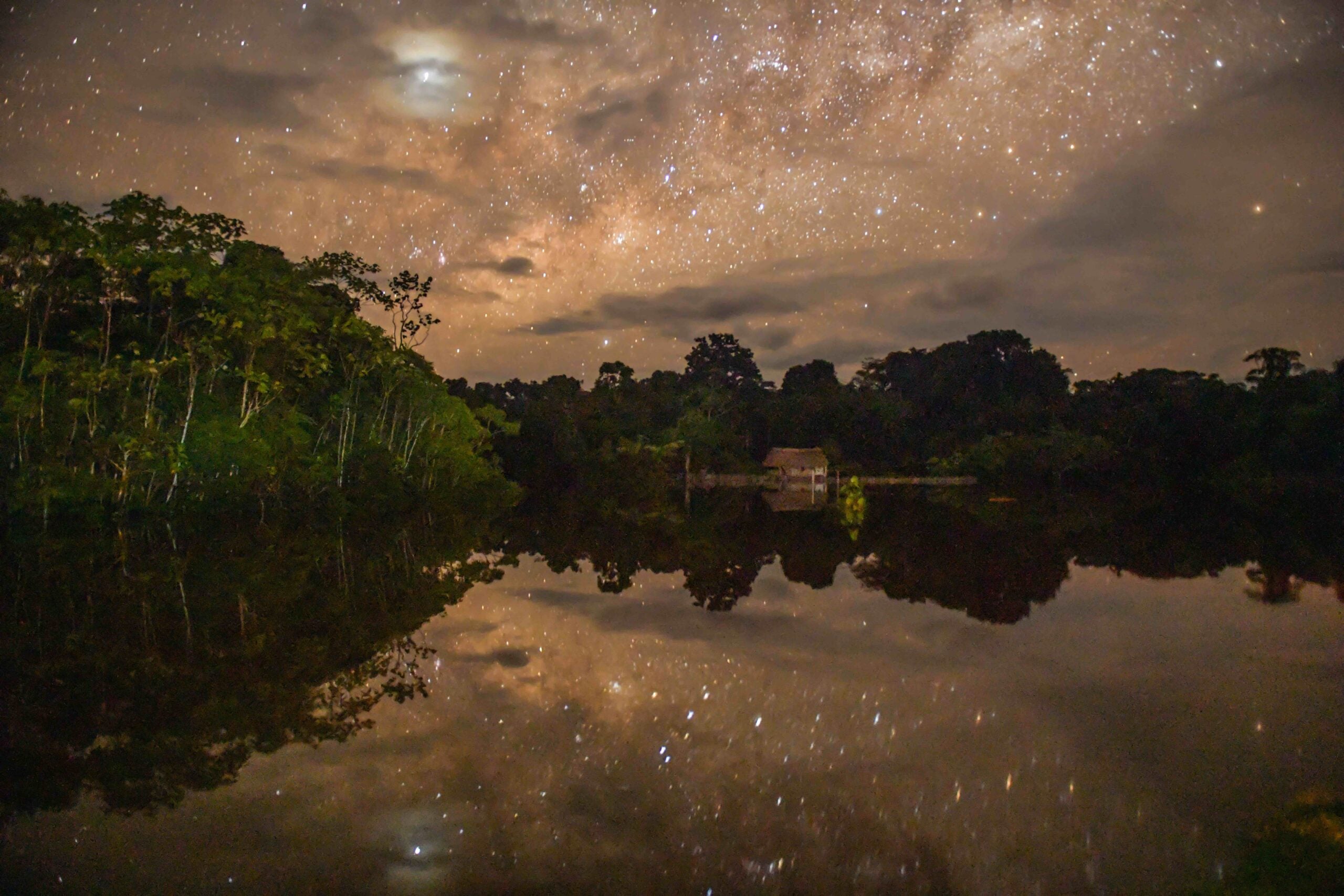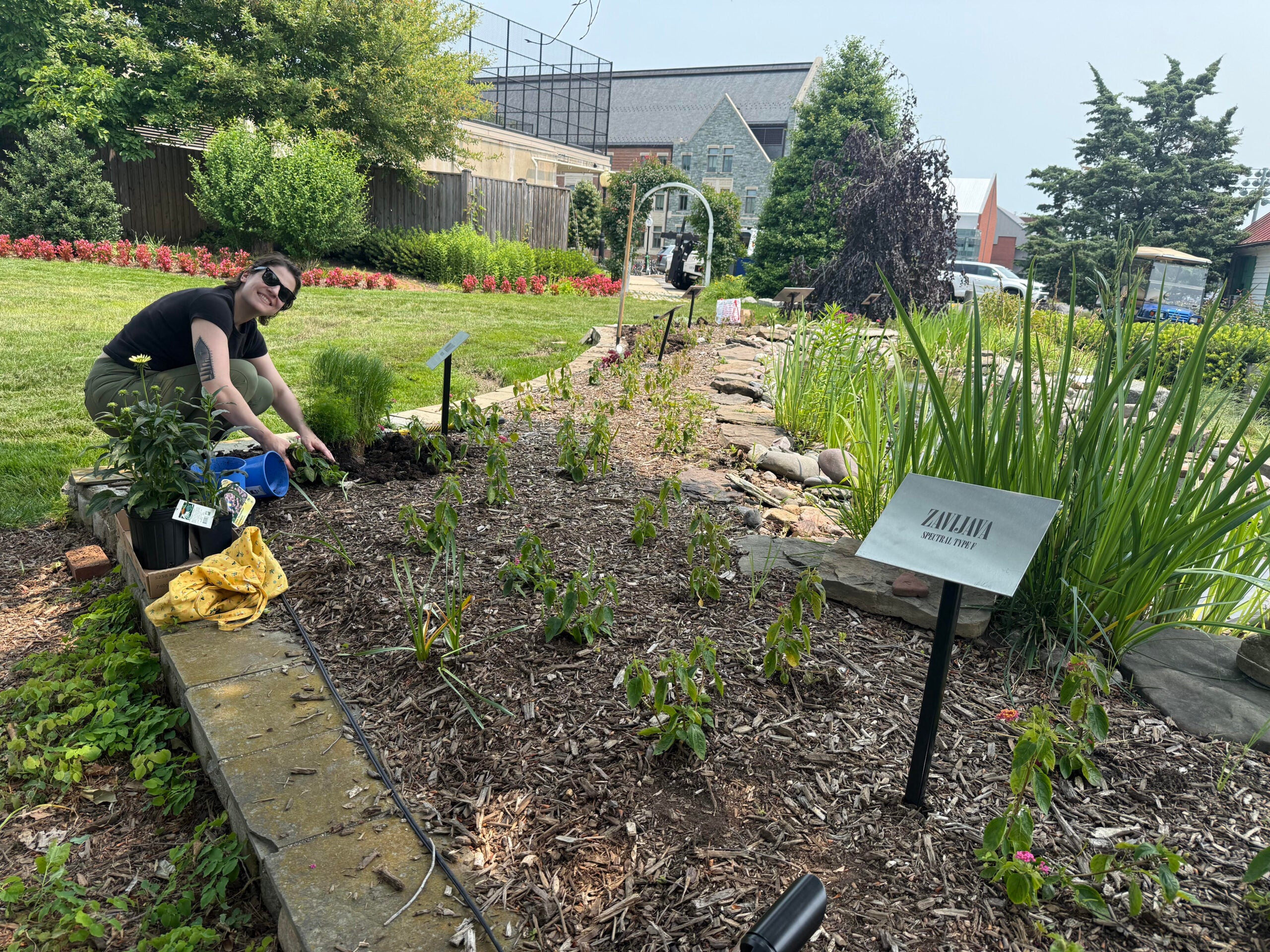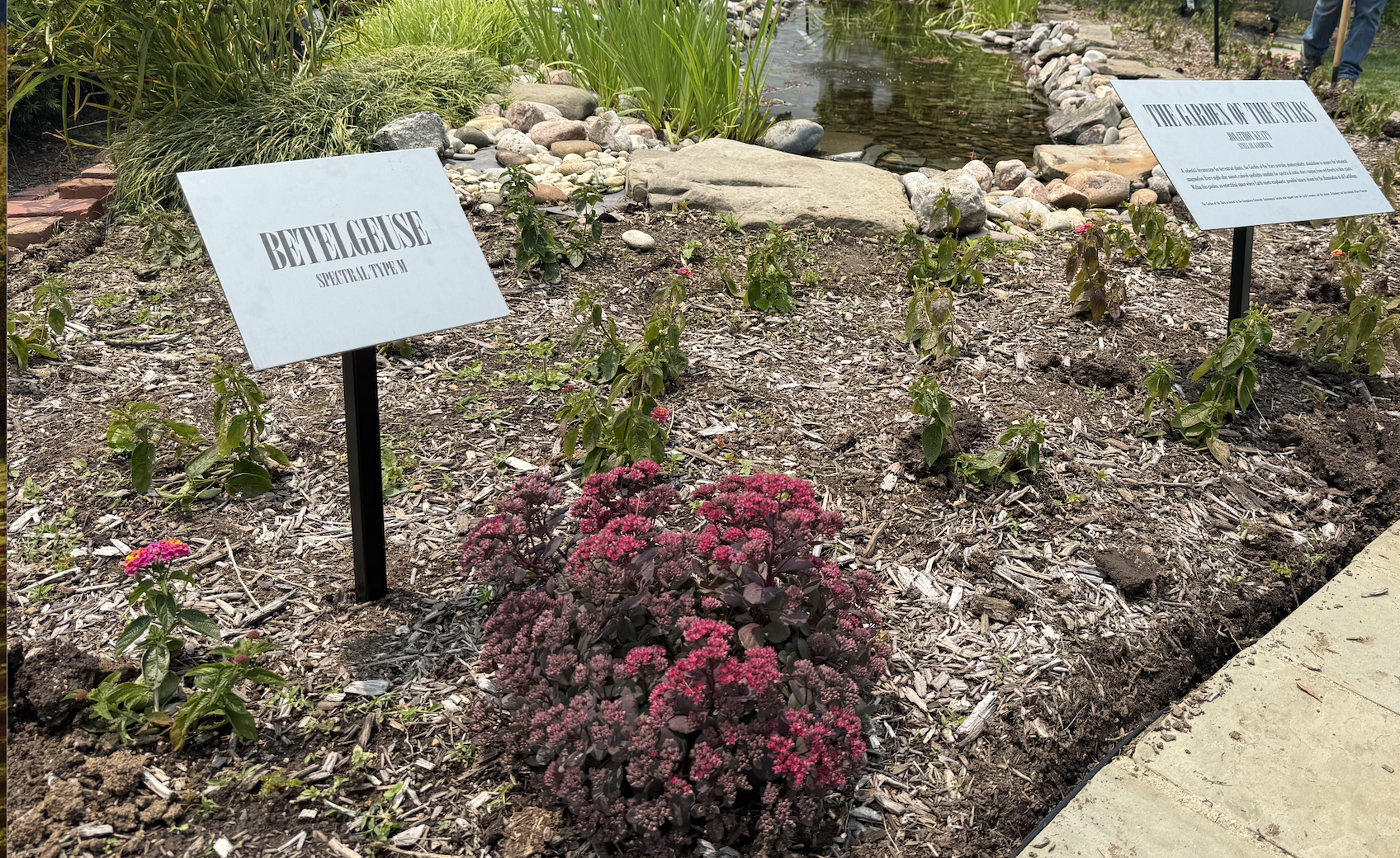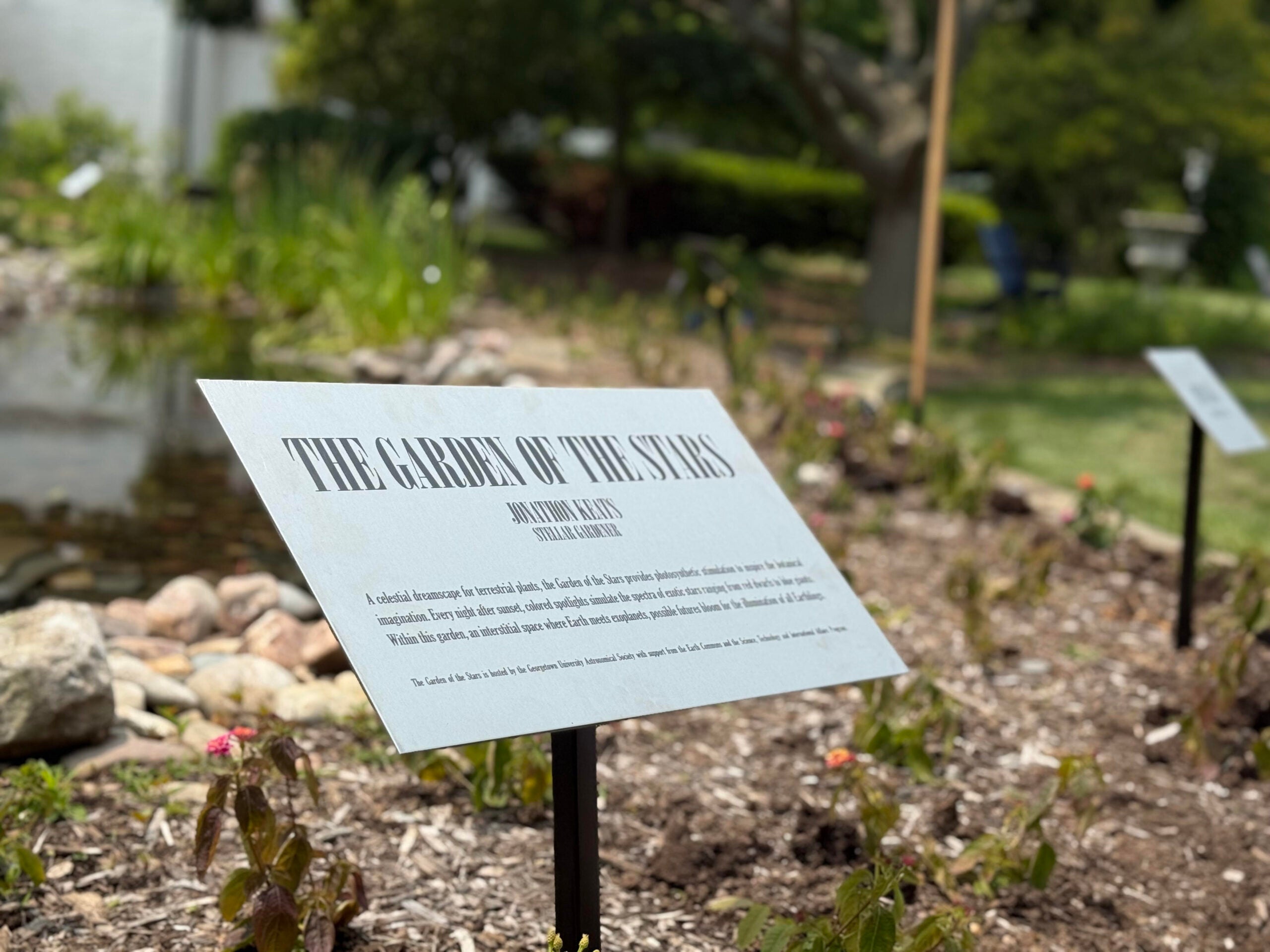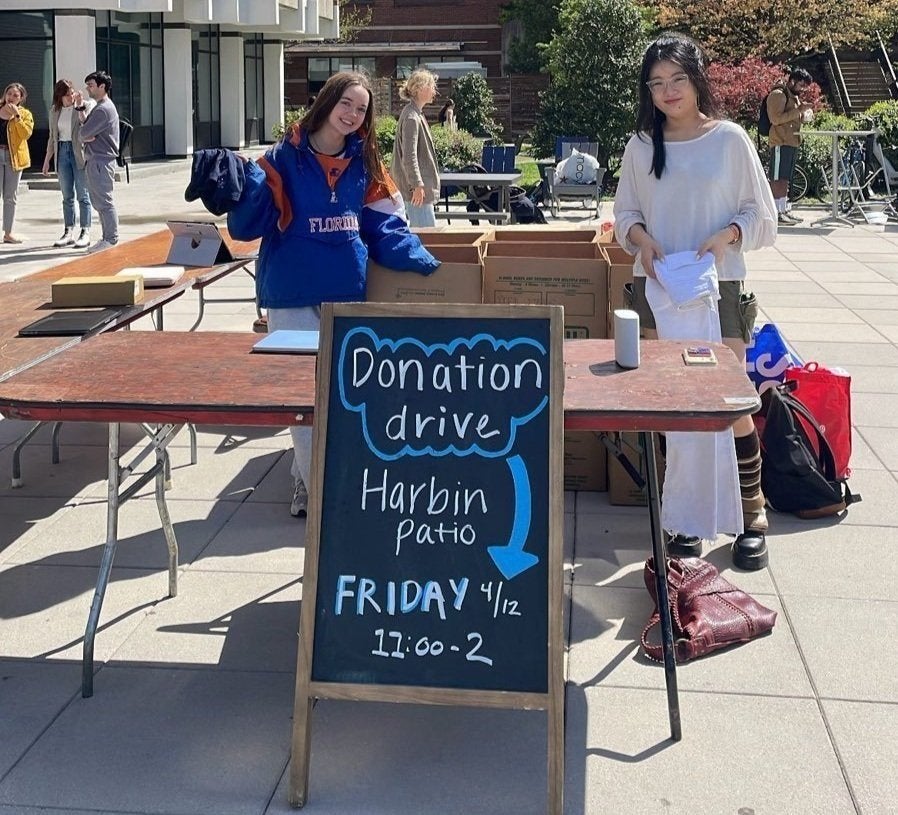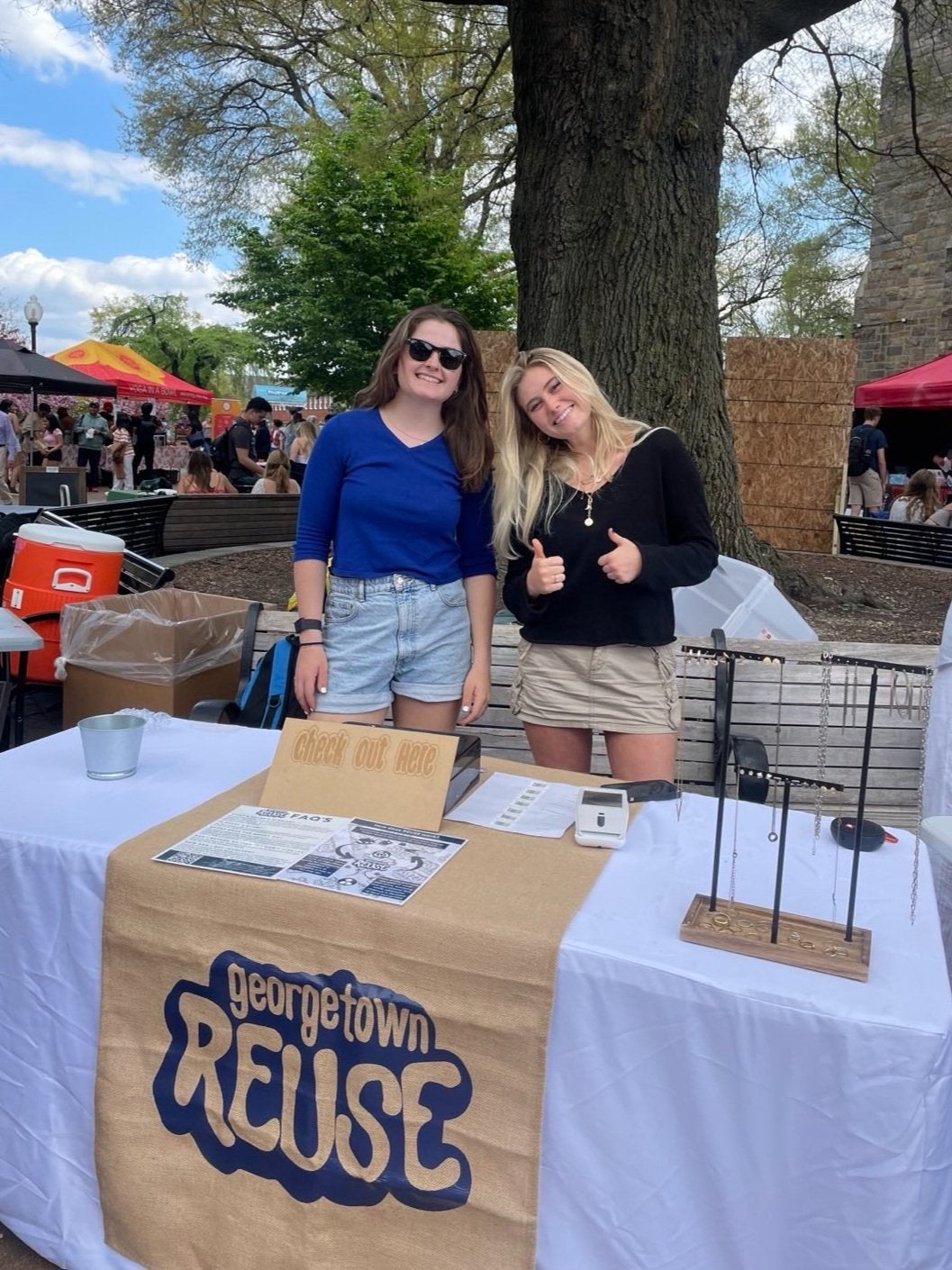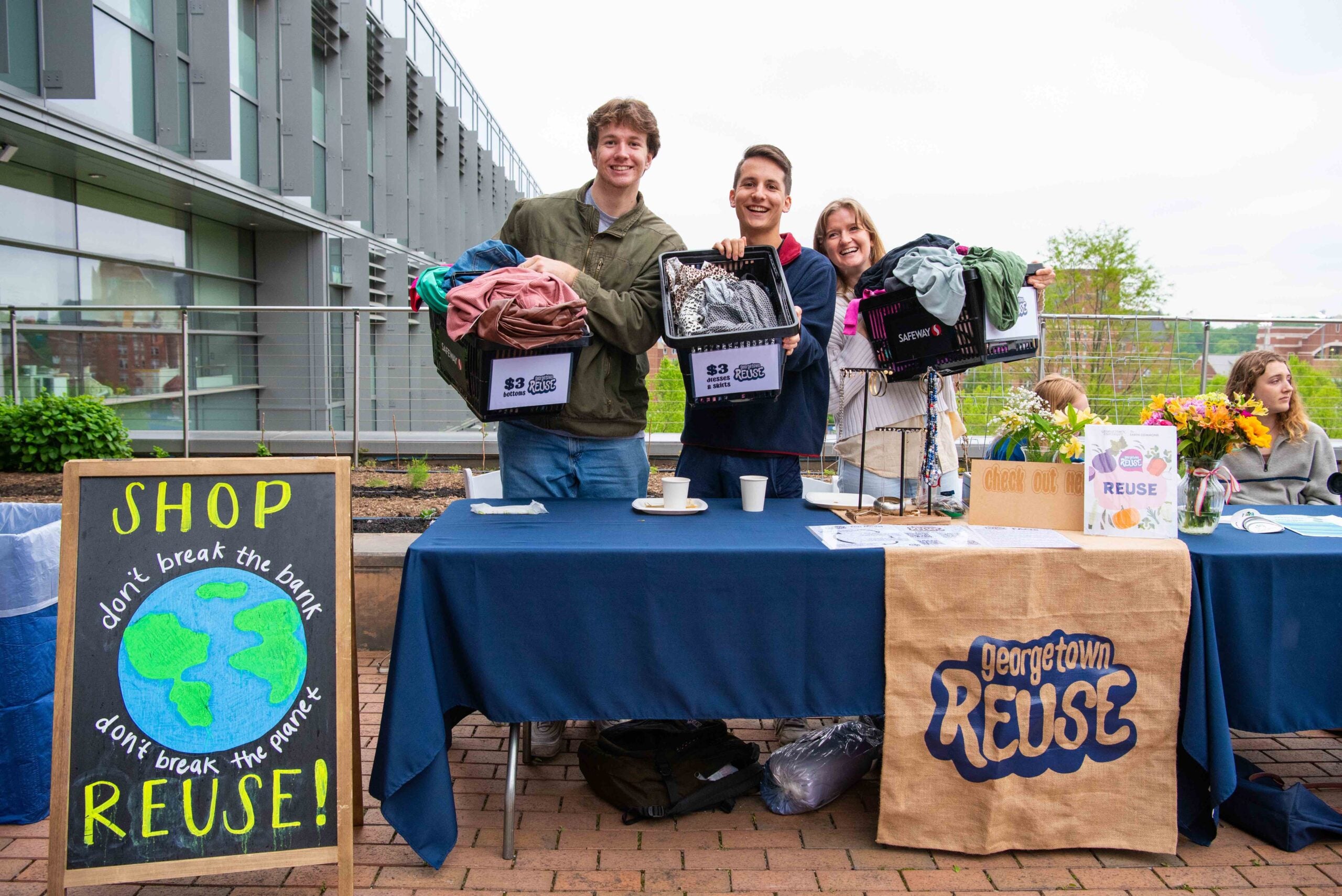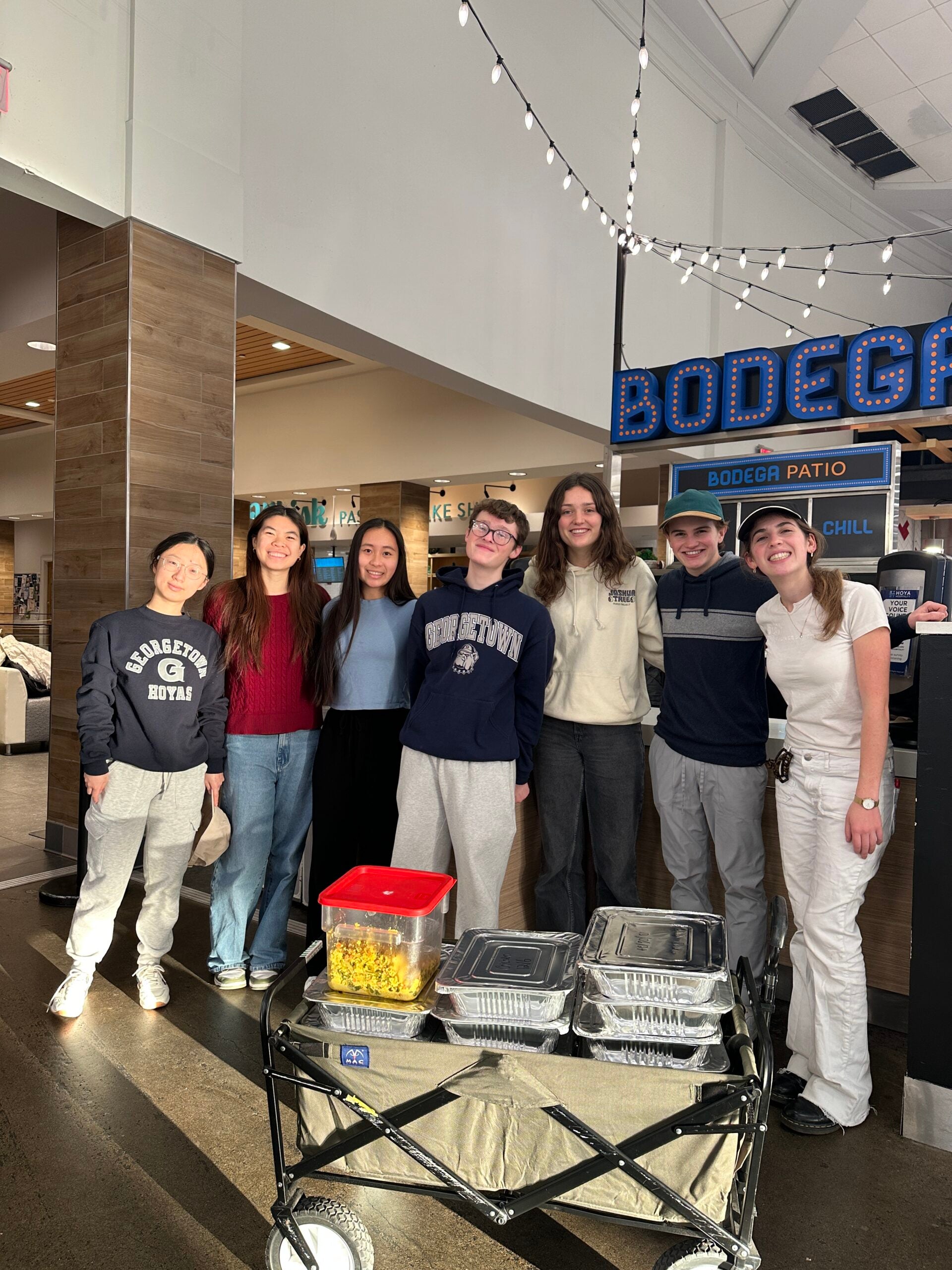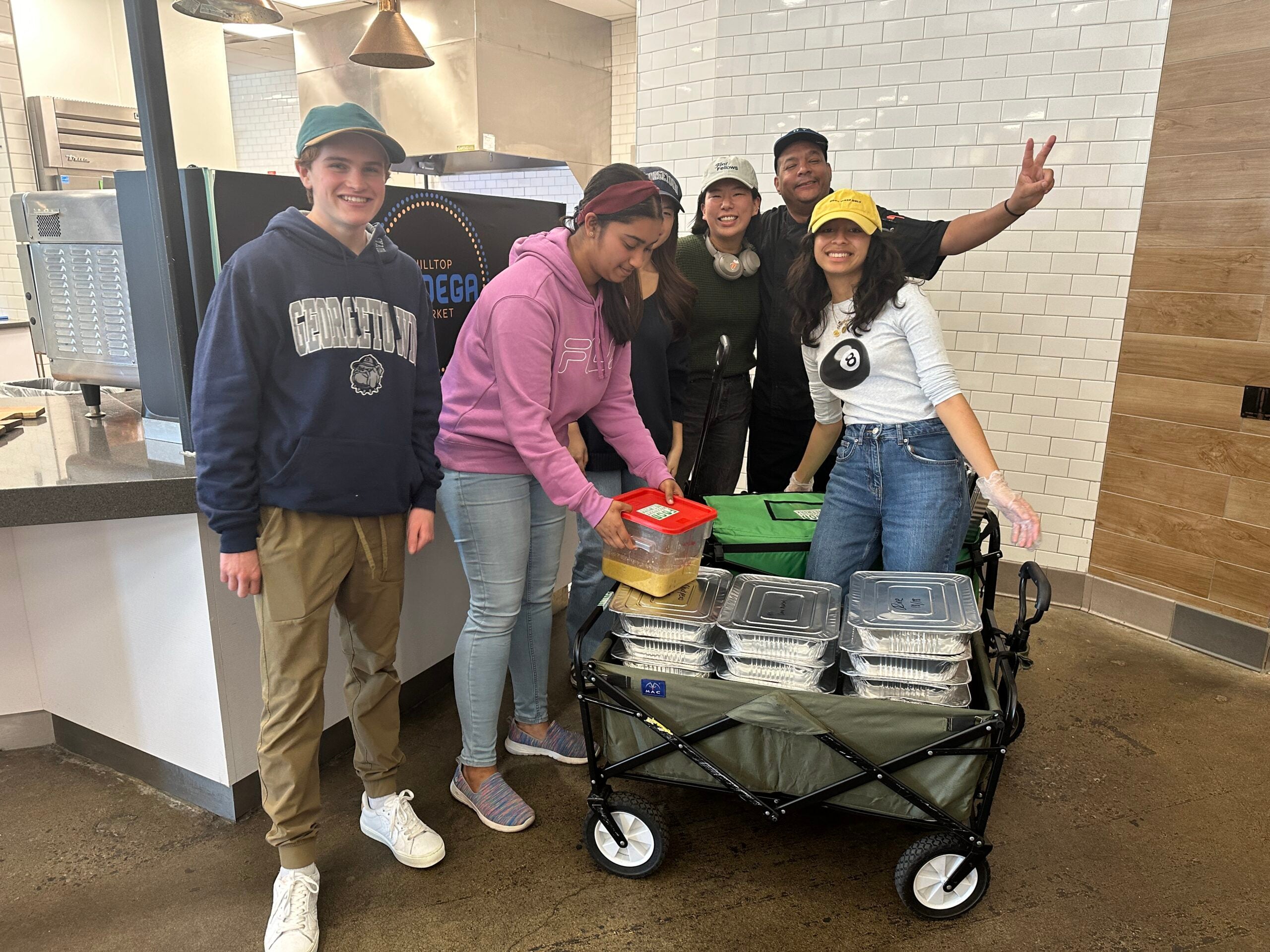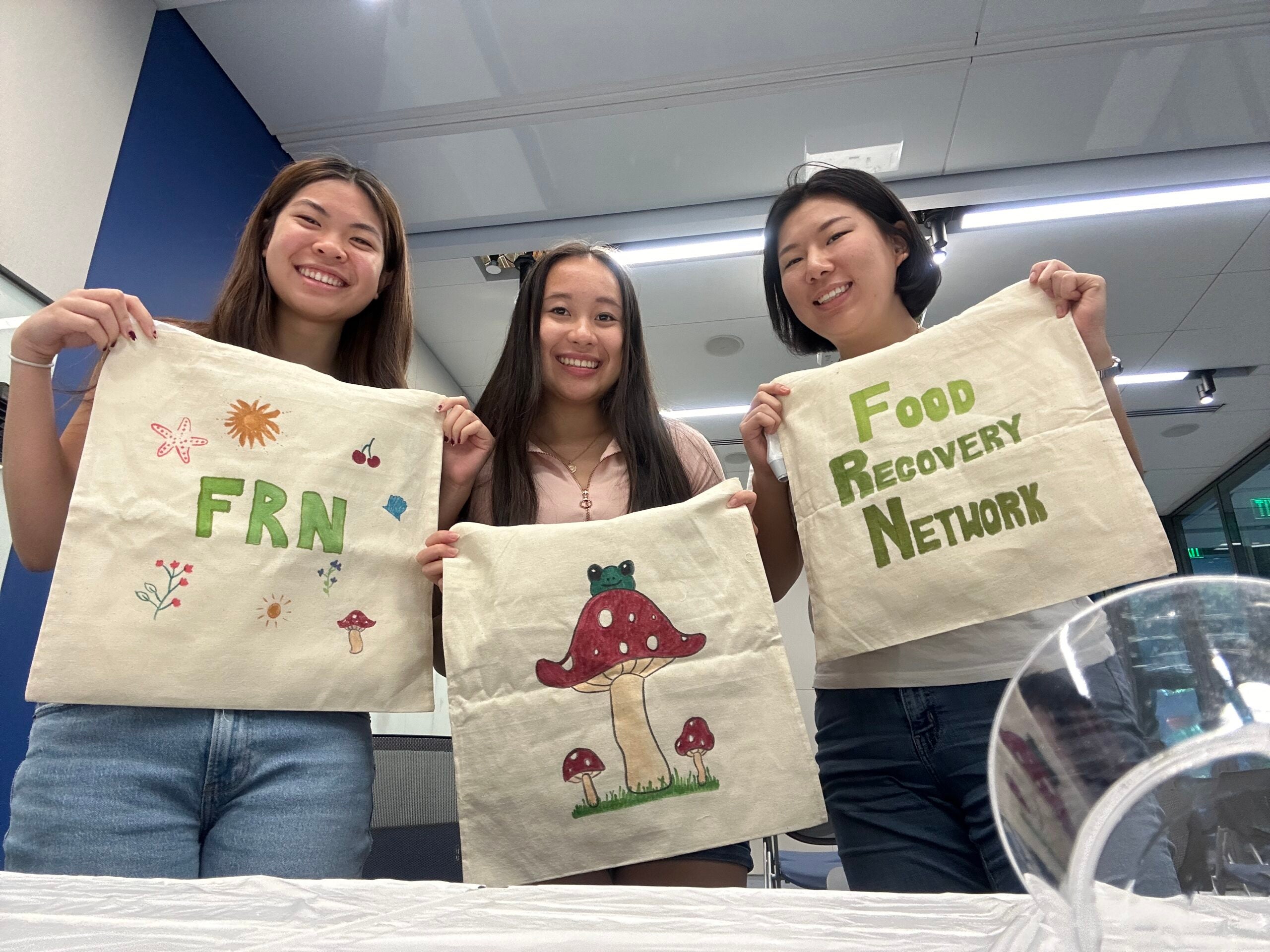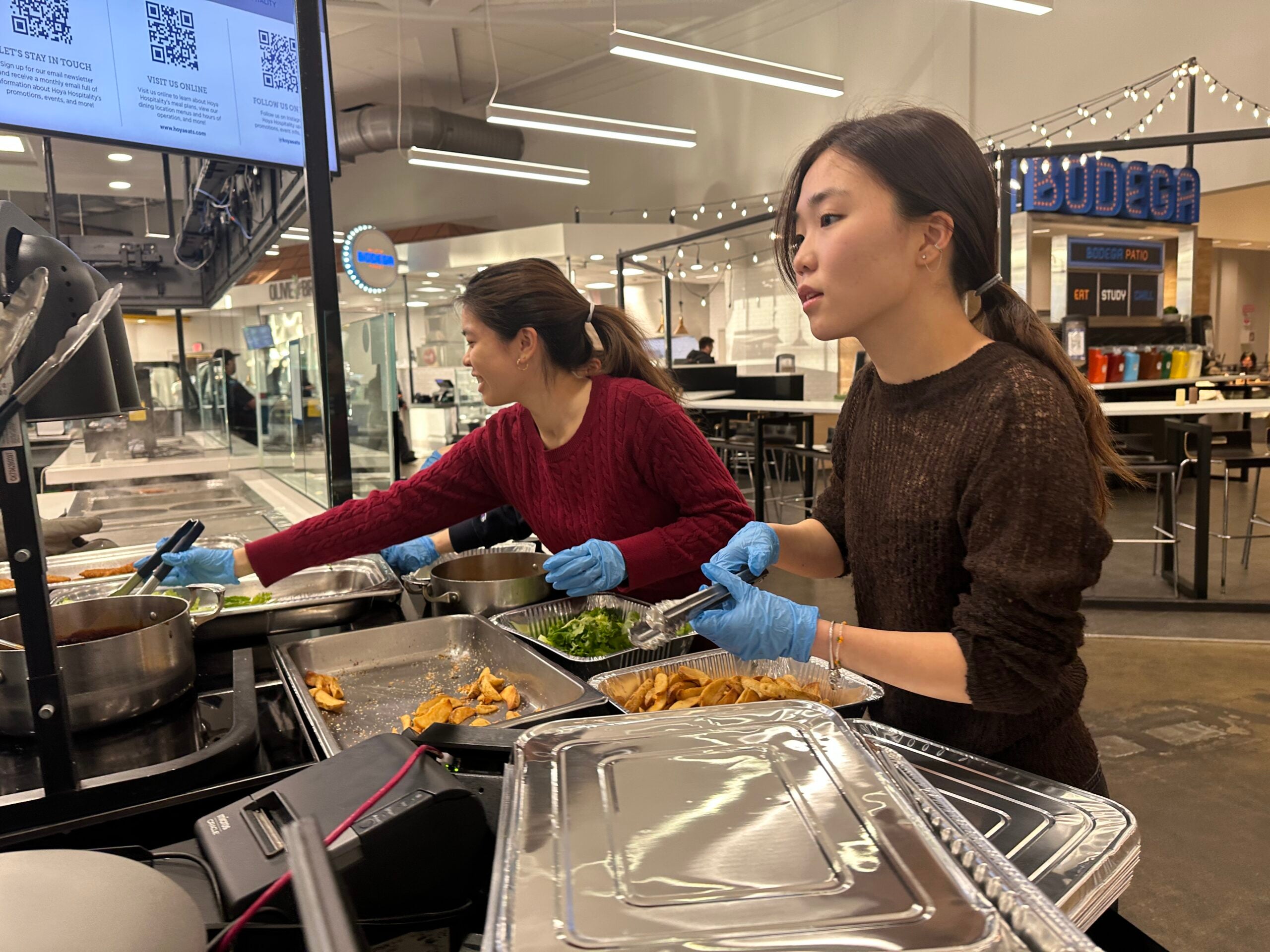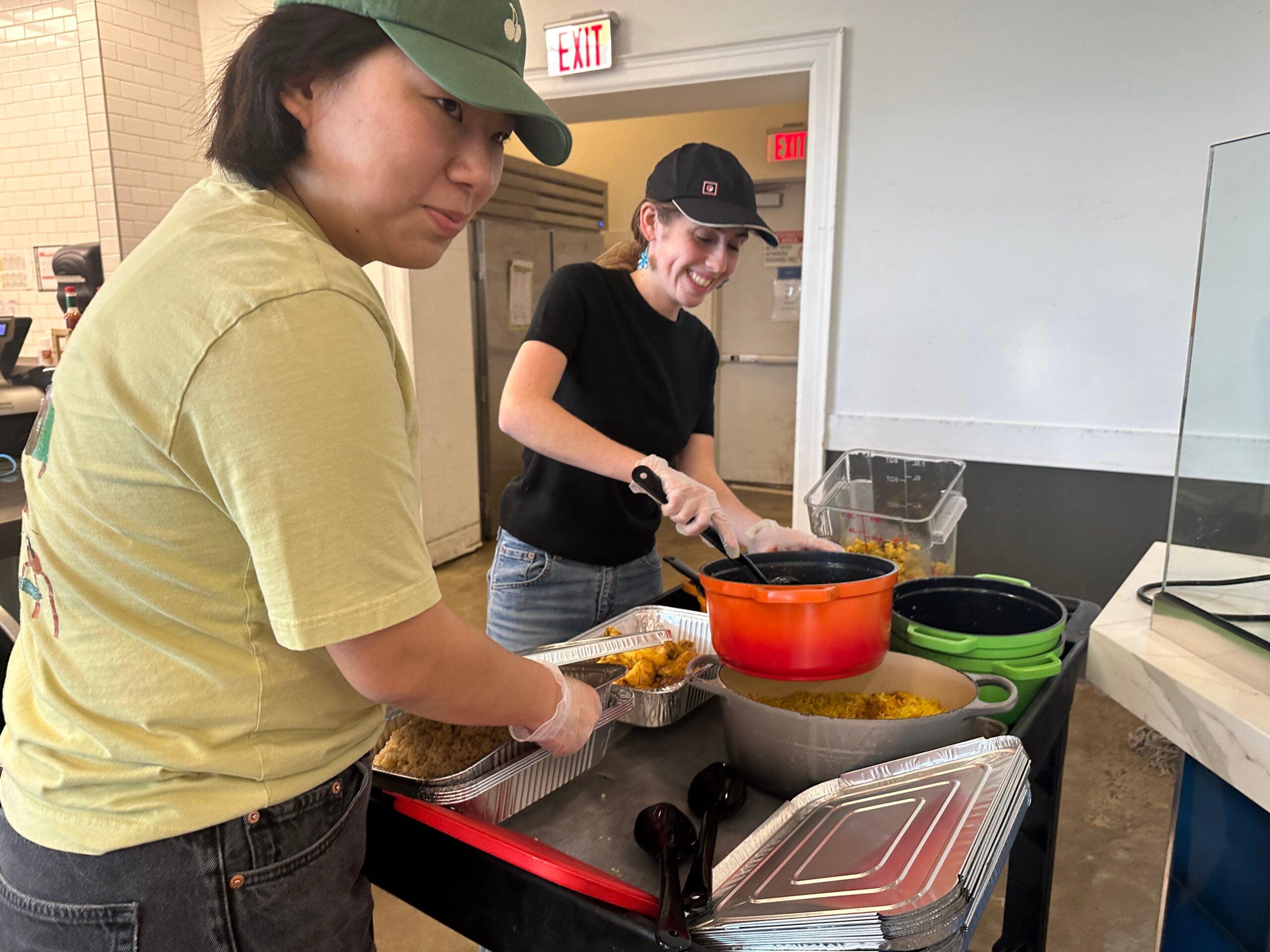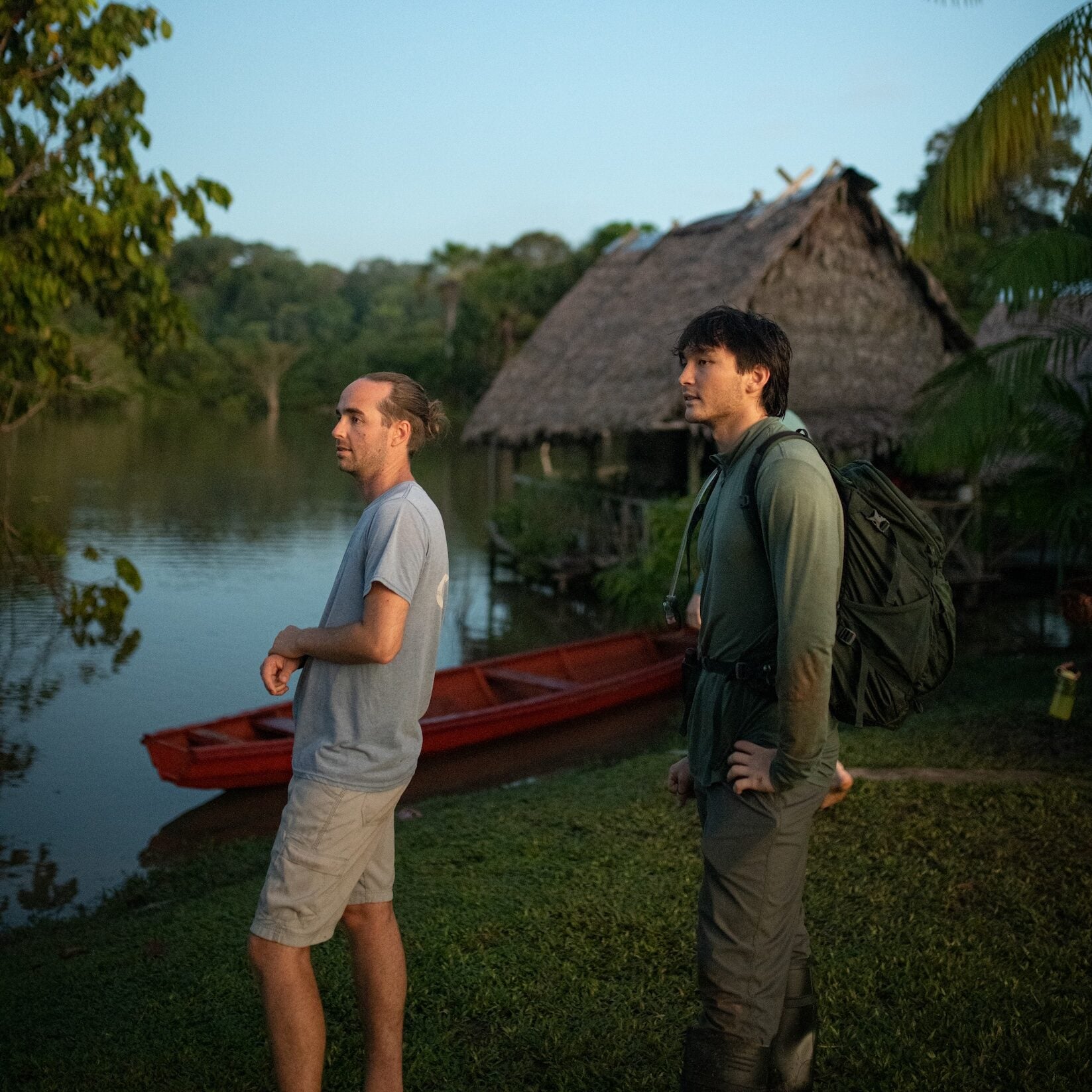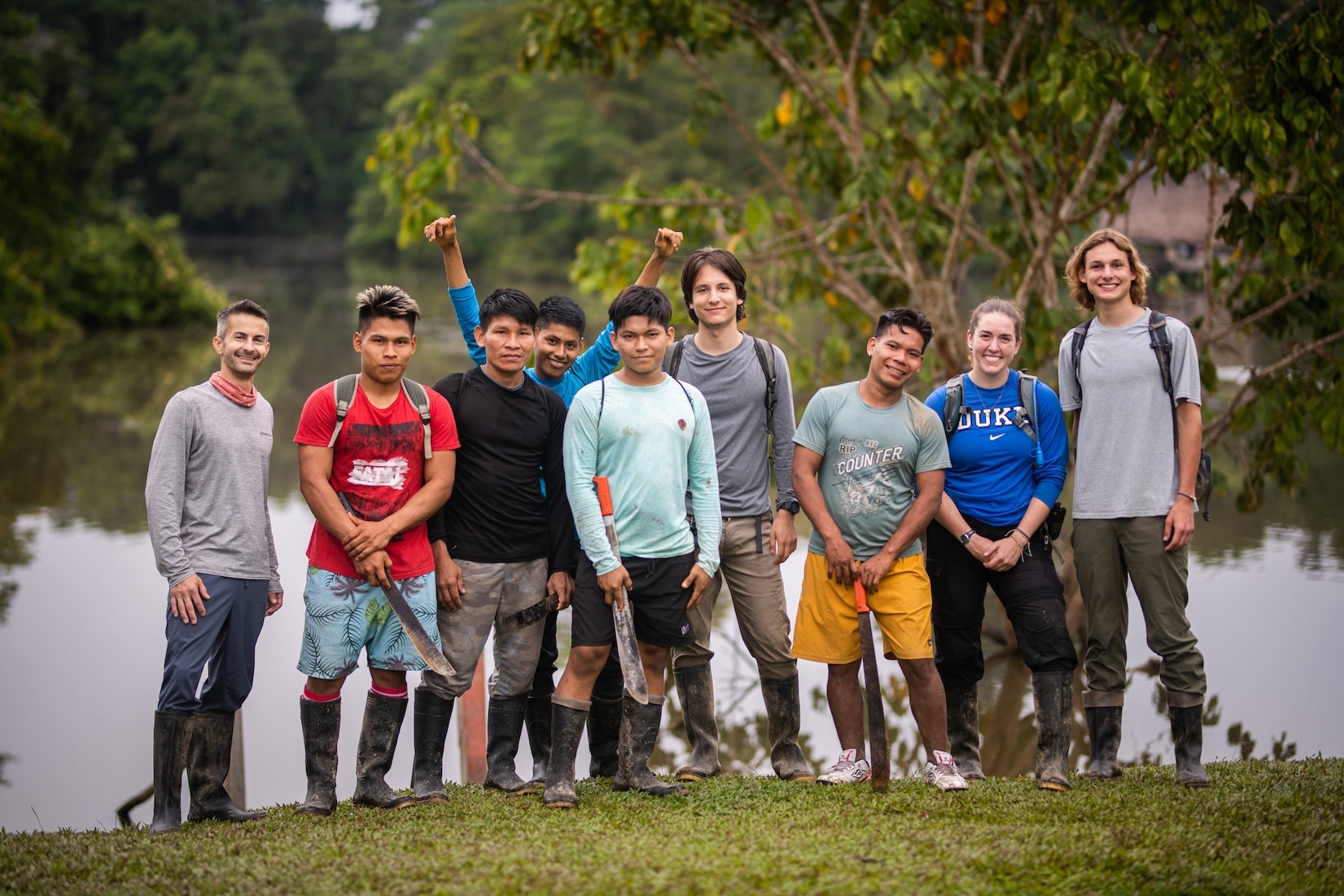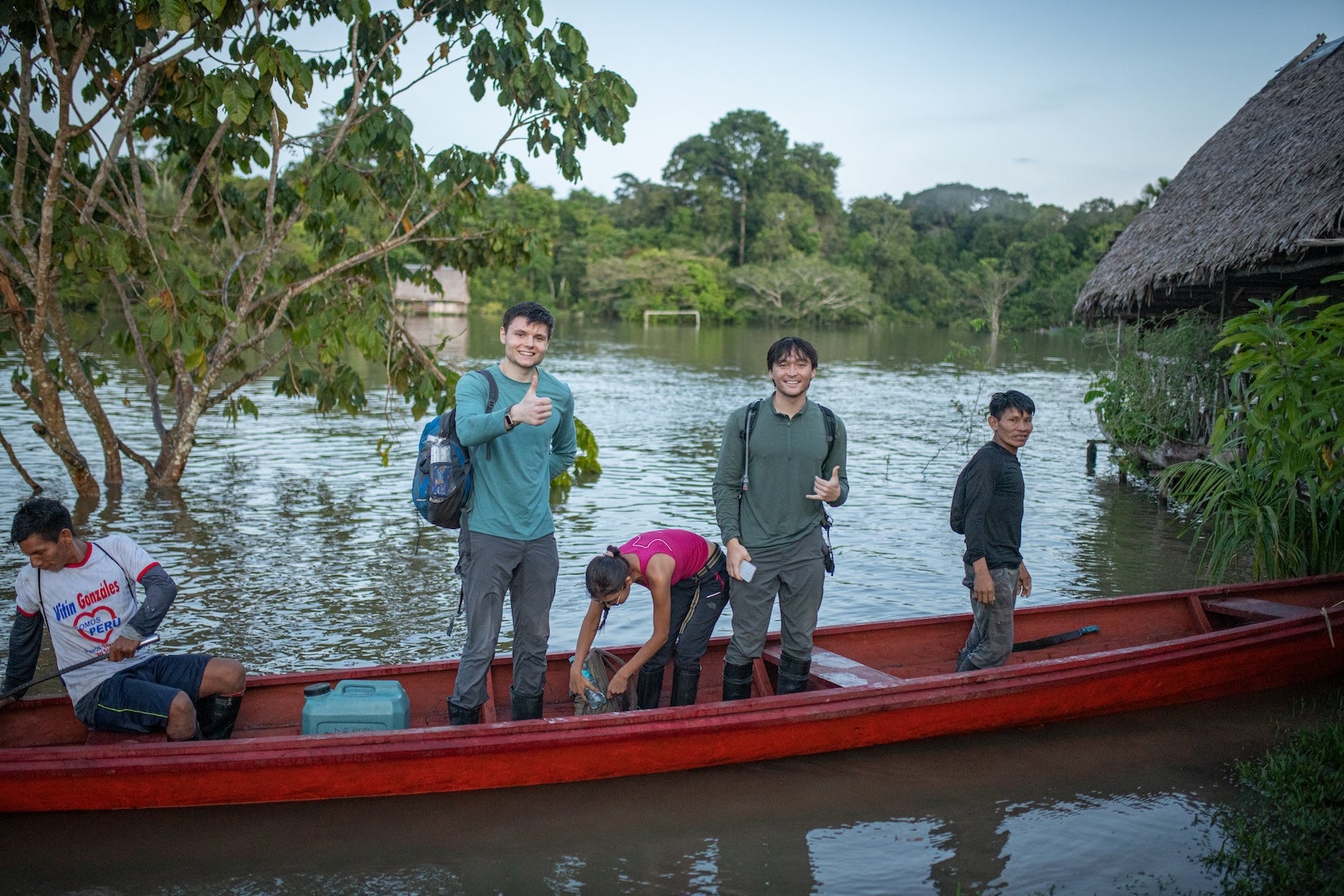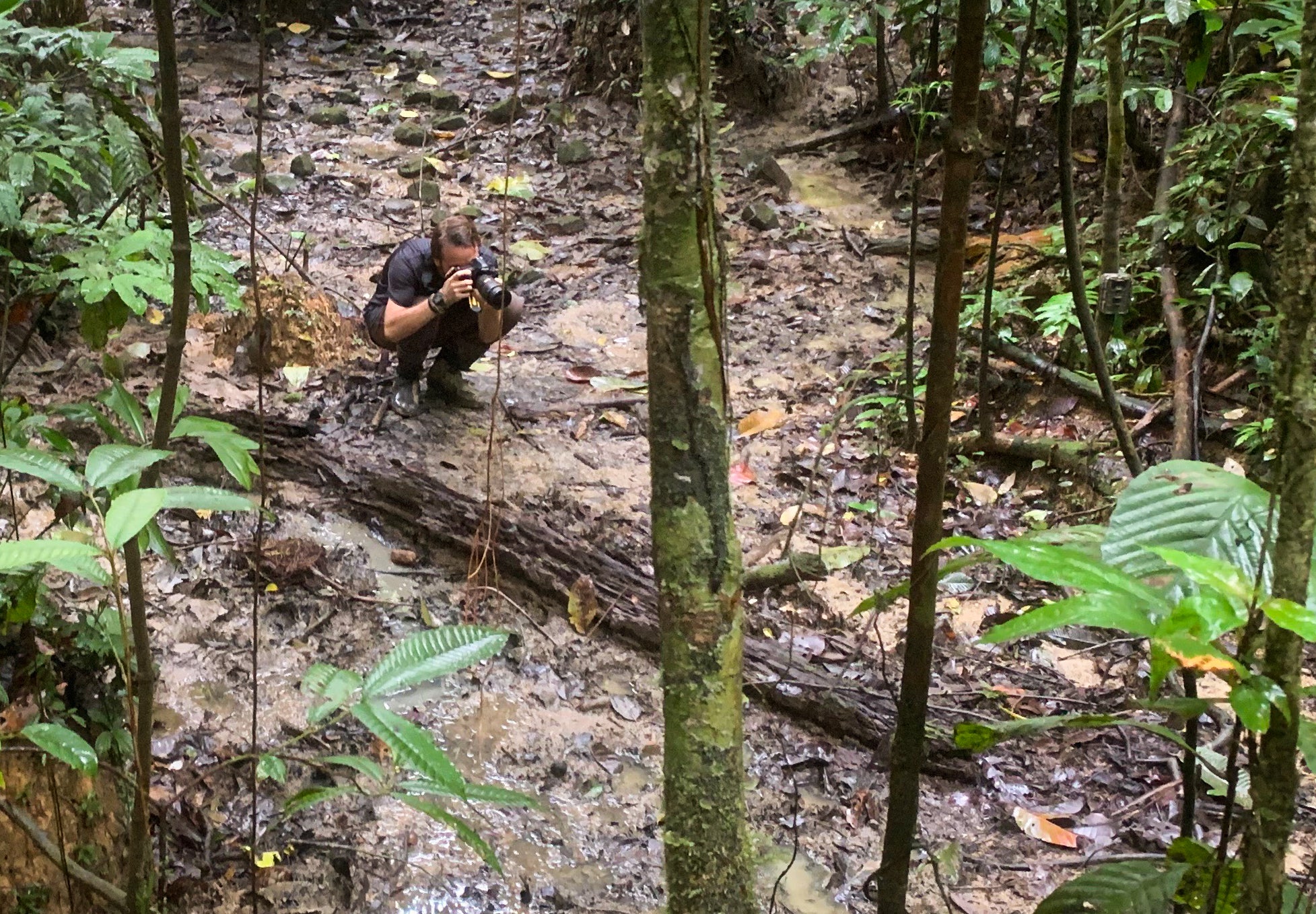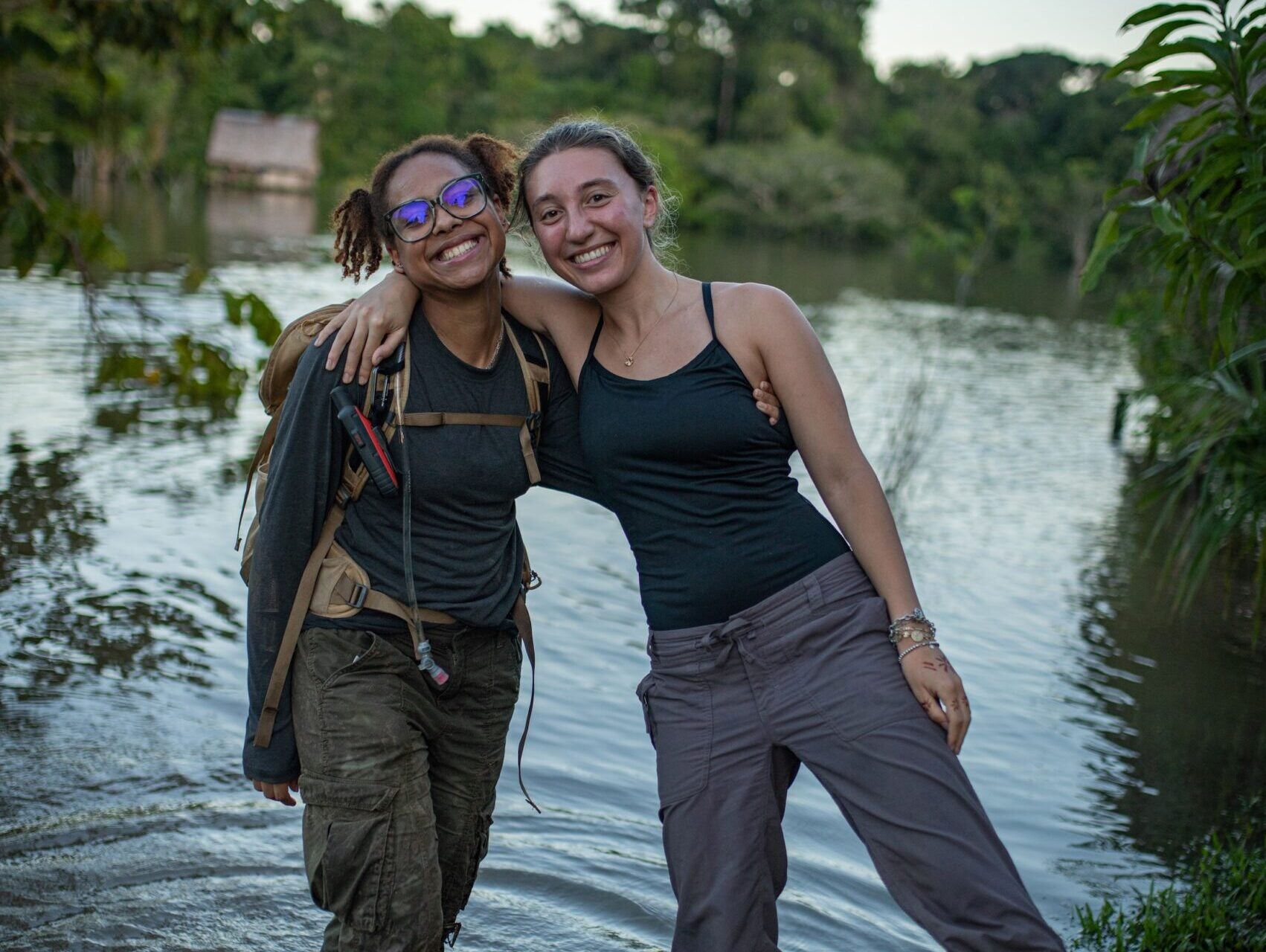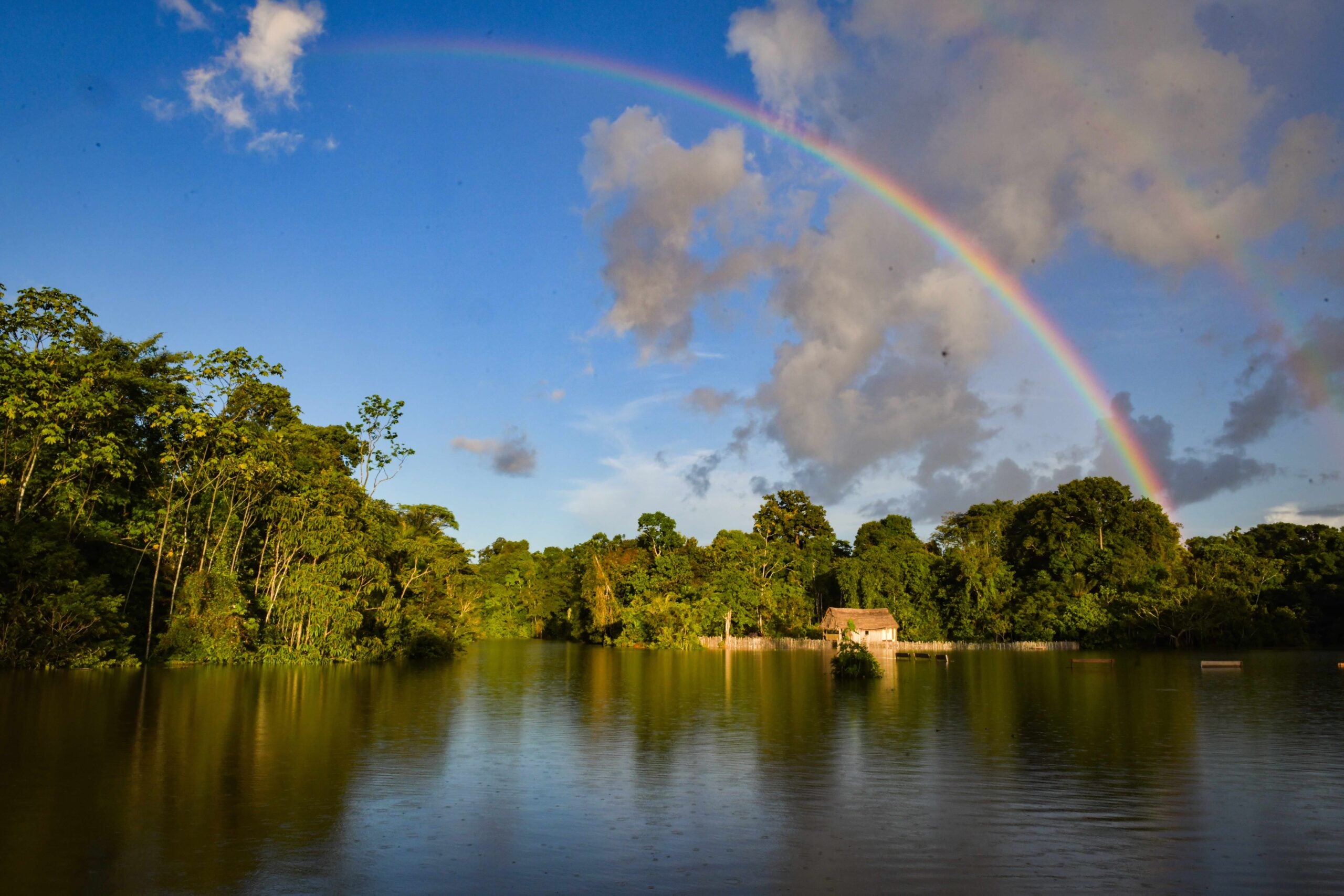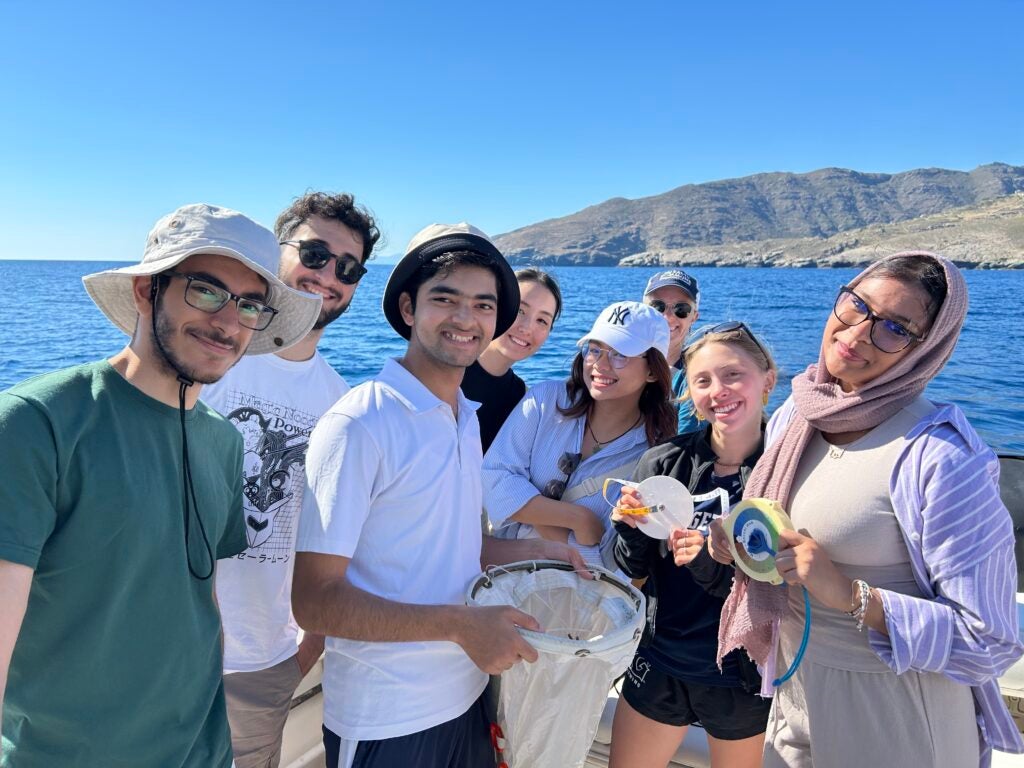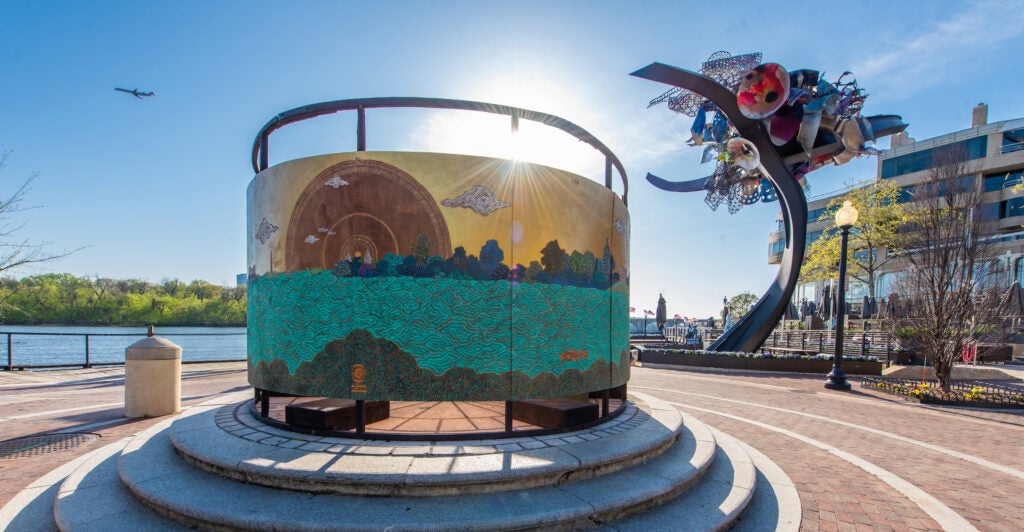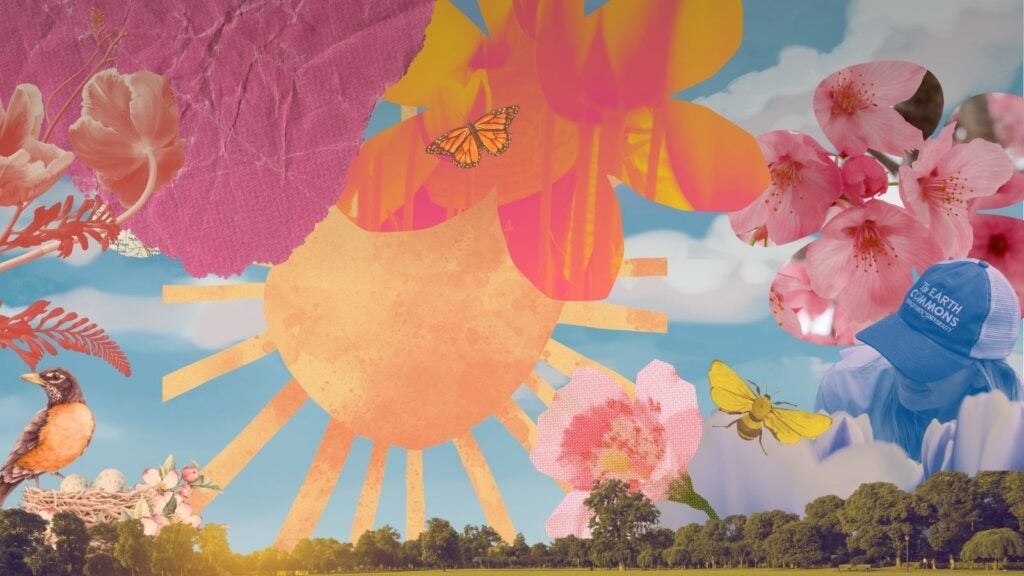“[Seed funding for research] allows us to explore new ideas which may form the foundation of a much larger grant. It allows us to breathe a bit, explore different methods and ideas, and spend some time really focusing on building a robust new research program that can yield some great discoveries.” Professor Brian Griffiths
ECo Awards are supporting big questions and bigger answers, on and off campus
If you have trekked up to Georgetown’s observatory recently and pondered that it now resembles a “celestial dreamscape,” or noticed students picking up excess food from Leo O’Donovan’s Dining Hall, or, even, read about new research on potato virus transmission, you have encountered the Earth Common’s (ECo) grant funding at work.
The Green Commons Awards, offered in collaboration with Georgetown’s Office of Sustainability and open to all Georgetown community members, grew out of Georgetown’s institutional signing of the Laudato Si’ Action Plan to protect our “common home.” Many of the awards are granted to student-led projects, offering a rare opportunity for students to run the practical details of budgetary spend-down, project planning, implementation, and reporting. To date, approximately $62,600 has been awarded to projects that make the environment more visible, tangible, and communal—turning Georgetown campuses into sites of environmental engagement.
The ECo Impact Awards provide seed funding for interdisciplinary and collaborative faculty research. The 16 recipient projects to date span continents, schools, and disciplines—from tracking the mental health effects of extreme heat in Bangladeshi slums to analyzing ancient clay technologies in rural Zambia. Other teams are modeling dolphin populations in the Chesapeake Bay, investigating disease transmission in crops, and studying political resistance to decarbonization. With 16 interdisciplinary awards and $353,327 granted since 2022, the program reflects how faculty from across public health, law, history, chemistry, and others are using the seed funding to explore the many ways climate and sustainability issues cut across academic boundaries.
End of carousel collection.
Georgetown REUSE—a student-run non-profit that collects and distributes affordable and pre-loved clothing, school supplies, and dorm materials to students and community members—is a recipient of the Green Commons Award. The award was used to “jumpstart” the organization, which diverted 3,720 pounds through sales and an additional 640 pounds from landfill during the 2024-2025 school year The organization supports 8 student managers and associates each semester and 100% of profits go to an annually selected partner. Last year, it was the Alice Ferguson Foundation ,which supports environmental education in the Potomac River Watershed. This year, Rachel’s Network, a community of women promoting female environmental leaders, received support from the organization.
End of carousel collection.
The Georgetown Food Recovery Network was also able to level-up their work with Green Commons support. The award helped the students get the materials they needed to start their local chapter and provide their membership with food safety training. Over the 2024-2025 academic year, the students made two pick-ups a week of excess food from the Leo’s Dining Hall and Epicurean dining center on campus and delivered it to Charlie’s Place, a soup kitchen in Dupont Circle. Their social media highlights their diversion of food from campus trash each week, which averaged 80 pounds of food a week and even, at times, 134 pounds of food a day.
End of carousel collection.
Students aren’t the only ones receiving Green Commons support. Professors Sarah Johnson, Dagomar Degroot, and Jonathan Keats (an artist-in-residence at the Search for Extraterrestrial Intelligence Institute created the “Garden of the Stars” installation at the Georgetown campus observatory. The garden, a collection of plants accompanied by solar-powered lanterns emitting lights of varying wavelengths, “is a celestial dreamscape for terrestrial plants, highlighting the beauty of our common home and calling visitors to envision other ‘habitable’ and ‘inhabited’ worlds, underscoring the fact that there is no ‘Planet 2.0’,” says Catherine Maggiori, a postdoctoral Biology researcher at Georgetown who wrote the grant and assisted in the project. ECo funding was essential for the project because as “a unique, interdisciplinary effort that combines an art installation with an interactive learning experience; the garden falls a bit outside of ‘usual’ funding sources, but we felt it was a perfect fit for Earth Commons as it embodies the Laudato Si’ value of “spirit of ‘integral ecology,’” Maggiori explains.
While the Green Commons Awards support a wide-range of projects on campus and in the D.C. community, the ECo Impact Awards focus specifically on providing seed funding for research projects and new collaborative and interdisciplinary research inquiries.
Professor Brian Griffiths expresses the importance of “seed” money for research projects, including his own: “It allows us to explore new ideas which may form the foundation of a much larger grant…allows us to breathe a bit, explore different methods and ideas, and spend some time really focusing on building a robust new research program that can yield some great discoveries.”
Professor Griffiths’ current research focuses on mineral licks in the Amazon Rainforest and how they may be a hidden reservoir for zoonotic disease transfer. His research involves many students who participate in intensive lab work as well as fieldwork in the Amazon. Griffiths believes this kind of hands-on experience is vital for the future of environmental science. “We need biodiversity and conservation to be colloquial topics that are grounded in students’ lived experiences, not just classroom discussions,” he explains.
End of carousel collection.
Adjunct Lecturer Dr. Oswaldo Villena has also been the recipient of the ECo Impact Award. The funds went towards his research into the impact climate change will have on virus transmissions in staple crops (e.g potatoes and corn). With ECo support for laboratory experiments and publications costs, Villena emphasizes how “Earth Commons funding for early career scientists” like himself was transformative in creating collaborations with other researchers. These collaborations have produced three separate published papers that examine data for 19 aphid species which are responsible for transmitting over 300 viruses in plants. The subject is “crucial for developing effective strategies to safeguard agriculture—especially staple crops—and ensure food security in a changing climate,” explains Villena. Two undergraduate students also participated in the research and are “co-authors of one of the papers in recognition of their meaningful contributions.” Villena sees the potential for future collaborations with the partnerships he developed through the award along with opportunities for students to pursue internships or research visits at partner institutions.
The Climate Chronicles Episode 1: A Shore on Svalbard
In the introductory episode of The Climate Chronicles, Professor Degroot uses one of the great adventure stories of the seventeenth century – the tale of fourteen men deserted on two Arctic islands – to introduce the history of climate change. Read or Listen
With ECo Impact support, Professors Dagomar DeGroot, John McNeill, and Amy Hessl hosted a two-day gathering at Georgetown for the authors included in a new book surveying how populations were resilient to climatic changes from the Last Glacial Maximum to the present period. The authors included in the book come from a wide array of disciplines and geographically span 6 continents, and with the ECo award, were able to collaborate in person for the first time, integrating and expanding their ideas for the forthcoming book. For a look into the themes of the book, check out Professor Dagomar’s The Climate Chronicles podcast for his research on early human adaptation to climatic change.
The wide-ranging community and research projects and that the ECo grants support reflect the diverse ways the Georgetown community is analyzing and addressing the climate crisis. As a multifaceted crisis that affects all aspects of our lives and society, there is no shortage of approaches to engaging in environmental work, and, as this small sampling of projects demonstrates, the Georgetown community is robust with students, faculty and staff that are taking advantage of the resources before them to take many small steps forward.
Apply by October 13, 2025 to be considered for the next cycle of Green Commons Awards funding.

